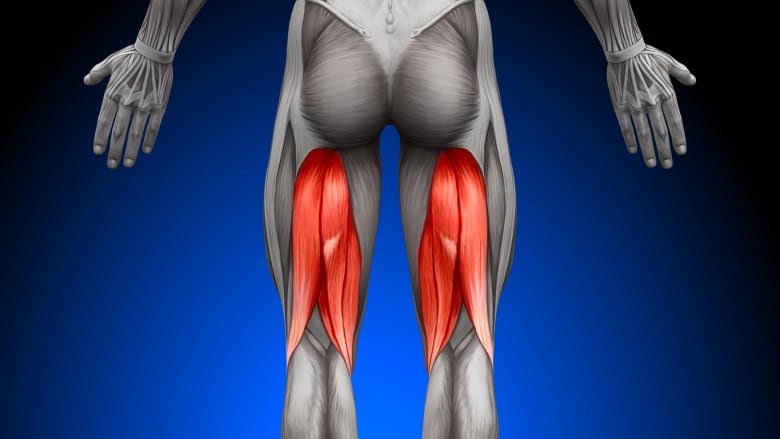Just as your favorite pair of jeans can become worn and threadbare in the knees, your tendons can also develop chronic injury through wear-and-tear.

Why does chronic tendinopathy occur?
There are 3 tendons in the back of the thigh that connect the hamstring muscles to the ischial tuberosity (the sit bone) in the pelvis. When people engage in sports or activities that subject these tendons to repetitive motions, the elastic collagen proteins in the tendon become injured and start to break down, causing degeneration of the tendon.
Chronic tendinopathy may be triggered by:
- An acute tear of the tendon that doesn't heal properly (See: Acute Hamstring Tears), or
- Prolonged inflammation of the tendon (known as tendinitis), which can trigger eventual degeneration (known as tendinosis or chronic tendinopathy).
See What Is the Difference Between Tendonitis, Tendinosis, and Tendinopathy?
Symptoms of chronic hamstring tendinopathy
The signs that the hamstring tendons have experienced a chronic injury are fairly distinctive:
- Pain deep in the buttocks, upper thighs, or back of the hips that starts gradually.
- Pain or discomfort when sitting down, especially if it gets worse after sitting for a long time.
Pain that is triggered or worsened by an activity that involves repetitive leg motion, particularly running or biking. The pain may even begin at the same point in the workout.
- Pain when bending fully at the waist, for example to pick something up off the ground.
- Pain that gets worse when accelerating or sprinting.
See Symptoms of Chronic High (Proximal) Hamstring Tendinopathy.
Occasionally, chronic hamstring tendinopathy can also cause pain that radiates down the back of the leg, commonly known as sciatica. This only happens when scar tissue from the damaged tendon entraps and irritates the sciatic nerve.
Because it involves degeneration of the tendon, chronic hamstring tendinopathy can take a while to heal. But having this injury diagnosed and treated is important, because this can decrease pain and risk of reinjury and increase the potential for returning to play.
Treatment options for chronic tendinopathy include:
- Treatments for Chronic High Hamstring Tendinopathy
- Minimally invasive methods like injections or needle tenotomy
- Surgery
Learn more:
What Causes Buttock Muscle Pain and How to Relieve It on Spine-health.com

